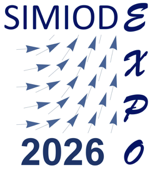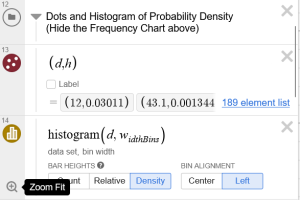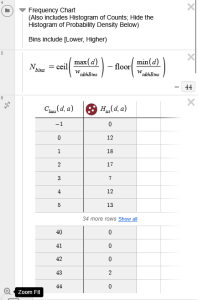FYMSiC News
Announcements
Dear FYMSiC friends,
Save the date !!!
(No, we are not having a baby or getting married or graduation or any other life milestone.)
Our 2026 FYMSiC Conference, University Mathematics and Statistics Courses Under the Microscope is officially happening!
Location: McMaster University, Hamilton, Ontario, Canada
Dates: Friday, May 8th — Sunday, May 10th, 2026
We have a fantastic set of speakers!
Keynote speaker:
-
Carl Wieman (Nobel Prize Recipient)
Plenary lecturers:
-
Daniel Clegg and Saleem Watson (Authors of Stewart’s calculus textbook)
-
Tyler Holden (University of Toronto Mississauga)
Our goal for the 2026 FYMSiC conference is to spark meaningful, energizing conversations about the teaching and learning of university mathematics – examining the current landscape and imagining the future. Together, we will explore what works and what does not, but can be changed and improved! Be it in the classroom, in assessments, or in supporting the teaching team and students!
This year’s conference program will feature presentations from our FYMSiC friends on topics such as:
-
Active Learning – your take on engaging students in the classroom
-
Assessments – approaches that work or you want meaningful feedback
-
Hacks – practical tips for running courses, managing assessments, addressing student concerns, and navigating the use of AI
-
Supporting Good Students – resources that inspire deeper learning
We would love to have our FYMSiC friends actively involved! When you register, we warmly encourage you to sign up for a presentation and share your wonderful ideas.
Also, we have a few fun activities planned, too!
The 2026 FYMSiC Conference Information can be found at this link:
https://docs.google.com/document/d/19EleUx3DWgYjZ0DLRgg3Nz1zURSy4CIuZskDwD1yJXo/edit?usp=sharing
Everything is included in this document.
We truly hope you will join us in May!
It is going to be a wonderful and inspiring time with our FYMSiC friends! 🙂
2026 FYMSiC Conference Organizers
Andie Burazin (UTM); Becca Carter (Queen’s); Lauren DeDieu (Calgary); Miroslav Lovric (McMaster); Lee van Brussel (McMaster)
Good luck, FYMSiC! 🙂
Bok FYMSiC! 🙂
Passing along a great math ed event to participate in thanks to Brian Winkel (SIMIODE)! Check it out!
SIMIODE – Systemic Initiative for Modeling Investigations and Opportunities with Differential Equations (https://qubeshub.org/community/groups/simiode) announces its annual online, international conference EXPO 2026, devoted to practical activities for the classroom to build modeling-first differential equations courses.

SIMIODE EXPO 2026, 13-14 February 2026, Noon to 9:00 PM EST USA, will feature parallel sessions and breakout rooms for faculty to share their approaches and materials for participants to come away with clear and valuable activities for their own classroom. Early registration is $75US and registrants can bring a colleague FREE to share the good news of effective uses of modeling. Sessions will focus on immediate use activities participants can bring to their classroom. Individual collegial meetings and conversations are supported by the conference platform, so participants can meet new colleagues and exchange ideas.
See https://qubeshub.org/community/groups/simiode/expo for complete details. SIMIODE is a non-profit community of practice devoted to supporting a modeling-first approach to motivating and teaching differential equations which has received NSF funding.
Differentiate yourself, FYMSiC! 🙂
Congratulations
Acknowledgement
Edward Doolittle (Associate Professor & Associate Dean of Research and Graduate Studies, First Nations University of Canada) was featured in CBC News. Article: https://www.cbc.ca/news/indigenous/indigenizing-mathematics-spirituality-9.7026587
Thank you for all of your hard work and dedication
to mathematics and statistics education!
For past FYMSiC News, please visit the Past News.
FYMSiC Online Teaching Meetups
Online Teaching Meetups are a great virtual space to have a conversation about math and stats teaching and learning with students and educators. Each meetup has a specific theme such as ‘How to teach ‘em math proofs in first-year and beyond?’ or ‘What is CEGEP?’ or ‘Transitioning to university: high school teachers’ experiences and views’, which may be accompanied by a couple of presentations – but for sure, a healthy, therapeutic and cathartic dialogue is always there about teaching and learning!
Upcoming meet up …
Title: Teaching Applied Cryptography
Presenter: Alfred Menezes (University of Waterloo)
Abstract: In this talk, I will describe my experiences teaching a large undergraduate course in applied cryptography at the University of Waterloo. The course enrolled approximately 250 students from mathematics, computer science, and software engineering. The material was designed to be both accessible and relevant, while also introducing students to a broad range of concepts from mathematics, computer science, and engineering.
Biography: Alfred Menezes is a Distinguished Professor Emeritus in the Department of Combinatorics and Optimization at the University of Waterloo. His research focuses on cryptography, with contributions spanning elliptic curve cryptography, key agreement protocols, provable security, and post-quantum cryptography. He is co-author of “Handbook of Applied Cryptography” and “Guide to Elliptic Curve Cryptography”. He is currently developing content for his website, cryptography101.ca, which serves as a repository for online courses in cryptography and related areas.
Most recent meet up …
♦ Thursday, January 22nd, 2026, at 5:00 p.m. EST
Title: “Should University Academics Be Involved in K-12 Education: A Debate”
Debaters: Darja Barr (Manitoba) and Kseniya Garaschuk (Ottawa)
Abstract: This debate and the discussion that will follow will examine the reasons why (or why not) university instructors should be involved in K-12 math education. Of course, one thing is obvious – there are transitional issues from high school to university mathematics that require both sides (high school teachers and university instructors) to be involved. But there is much more than that, for instance: education of future teachers, or reaching out to local politicians, or getting involved in the work of a local school board.
Save the date …
♦ Thursday, March 12th, 2026, at 5:00 p.m. EDT
For past FYMSiC Online Teaching Meetups & Events and Resources mentioned and discussed, please visit the Meetups page.
Other Math & Stats Education Events
♦ May 8th — 10th, 2026 [In Person]: 2026 FYMSiC Conference, McMaster University, Hamilton, Ontario
♦ May 29th, 2026 [In Person]: Calculus Instruction in Atlantic Canada Conference, Mount Allison University, Sackville, New Brunswick
♦ May 29th — June 2nd, 2026 [In Person]: 2026 Canadian Mathematics Education Study Group Annual Meeting, Queen’s University, Kingston, Ontario
♦ June 5th — 8th, 2026 [In Person]: 2026 Canadian Mathematical Society Summer Meeting, University of New Brunswick Saint John Campus. Saint John, New Brunswick
Fields Institute Mathematics Education Forum
Meeting Information: http://www.fields.utoronto.ca/centres/centre-mathematics-education
The Fields Institute Mathematics Education Forum promotes discussion of issues in mathematics education at all levels, with special emphasis on education in the Province of Ontario. The Fields Institute for Research in Mathematical Sciences serves as the host of the Forum, but does not determine the agenda or the conclusions of the Forum. It is the goal of the Forum to consider objectively new ideas and diverse views in mathematics education, to facilitate consensus and to promote the enhancement of mathematics education in Ontario and Canada.
The Forum’s mandate is to foster the development of new ideas, methodologies and materials with respect to possible changes that could improve education in mathematics, and to work for the implementation of such changes.
University of Waterloo Mathematics Teaching Seminar
The Mathematics Teaching Seminar at the University of Waterloo is a biweekly meeting featuring discussions on undergraduate mathematics teaching. Participants in the seminar include lecturers, research faculty, and graduate students from all four of Waterloo’s mathematics departments and the David R. Cheriton School of Computer Science, as well as faculty members and teaching enthusiasts from around the world. Those who would like to attend are encouraged to reach out to the organizers, Burcu Tuncer Karabina and Chelsea Uggenti.
FYMSiC Newsletter
Current issue …
Issue 18 – February 17th, 2026
Our nineteenth issue is coming out in July 2026. If you wish to contribute to our Newsletter, please visit the Newsletter page.
Please send your contributions in Microsoft Word or LaTex (source) formats to: newsletter@firstyearmath.ca
For the nineteenth newsletter issue, the contribution deadline is on Friday, July 10th, 2026, by 11:59 p.m. (PDT).
FYMSiC Latest Share ….
Thanks to Fraser Turner (Mount Allison) for sharing some fantastic Desmo graphs for a Data Science class!
Hey there, just thought I’d share a few Desmos graphs I’ve found to be useful for my Intro to Data Science class:
Demonstration of different Means (showing how they’re sensitive to large and/or small values):
https://www.desmos.com/calculator/avcnasrcmt
Exploring the Binomial Distribution:
https://www.desmos.com/calculator/egrtrednku
This one is the main one I think is useful, where given a specific probability distribution (3 are pre-defined already), you can run randomized “experiments”:
https://www.desmos.com/calculator/rpab3fzdr1
Note for that one I’d suggest using the auto-scaling feature when switching between the probability density histogram and the frequency histogram:


Feel free to share around in whatever format! Attribution isn’t necessary.
Sharing is caring, FYMSiC! 🙂
FYMSiC Recent Publications
Warm congratulations to Kitty Yan (OISE, University of Toronto) and Miroslav Lovric (McMaster University) for serving as Guest Editors of the 2025 special issue in the Canadian Journal of Science, Mathematics and Technology Education, Mathematical Experience in Undergraduate Mathematics: Models, Methods, and Directions! This remarkable issue highlights innovative research and teaching practices shaping the future of mathematics education.
- Burazin A., Gula, T., & Lovric, M. (2025). Examining the effectiveness of the numeracy course ‘Numbers for Life’ at McMaster University, Adults Learning Mathematics: An International Journal, 19(1), 22-44.
- Burazin, A., & Lovric, M. (2025). Using Simulations to Enhance Understanding in Probability, Canadian Journal of Science, Mathematics and Technology Education, 25, 731-742.
- Jungić, V. (2025). Advanced Engineering Calculus: A Collection of Problems with Solutions, World Scientific.
Supported by …

